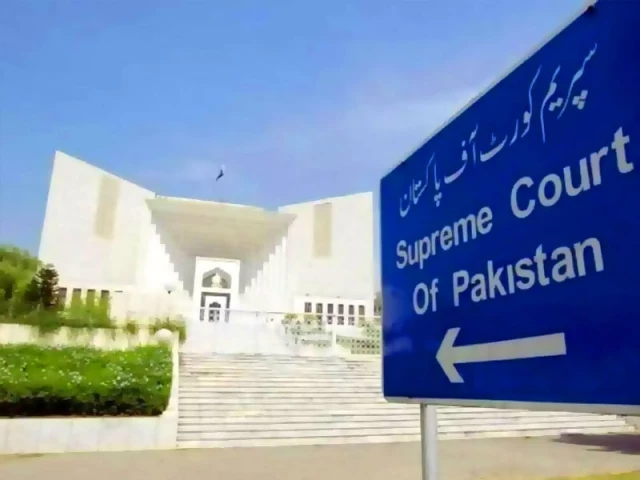ISLAMABAD:
The Supreme Court has ruled that the Constitution gives the president the authority to transfer a judge from one high court to another under certain conditions.
A constitutional bench (CB) of the apex court has unveiled its detailed order on petitions filed against transfer of three judges to the Islamabad High Court (IHC) in February this year.
On February 1, the Ministry of Law issued a notification for the transfer of Justice Sardar Muhammad Sarfraz Dogar, Justice Khadim Hussain Soomro and Justice Muhammad Asifrespectively from the Lahore High Court, the Sindh High Court and the Balochistan High Court — to the IHC.
Following this transfer, endorsed by the president, the IHC issued a new seniority list, ranking Justice Dogar as the senior puisne judge. Five IHC judges filed representations against this seniority list.
However, the then IHC chief justice, Aamer Farooq rejected these representations. The IHC judges and some other petitioners including Imran Khan challenged the ministry’s notification as well the new seniority list in the Supreme Court, whose five-member CB heard the matter.
On June 19, the CB led by Justice Muhammad Ali Mazhar declared that transfer of the three judges was not unconstitutional with a majority ruling of 3 to 2.
The majority opinion was supported by Justice Mazhar, Justice Shahid Bilal, and Justice Salahuddin Panhwar. However, Justice Naeem Akhtar Afghan and Shakeel Ahmad dissented from the majority decision. The majority judges have now unveiled a 55-page detailed order.
In the majority order authored by Justice Mazhar, the CB acknowledged that under the Constitution a high court judge could be transferred to another high court by the President.”However, it read into Article 200 an important limitation: a transfer can only be made in the public interest, not as a punitive measure or for political ends.”
It said a non-consensual transfer — especially coupled with forced retirement on refusal — militates against the concept of the independence of judiciary and effectively amounts to a circumvention of the removal process under Article 209.
The verdict said the introduction of provisions in the Constitution for transfer of a high court judge to another high court without his consent and also appointment of a high court judge to the Federal Shariat Court without his consent, at the peril of his being deemed retired in case of refusal will be unconstitutional.
“[Similarly introduction of a] provision relating to the nomination of a high court judge to any of its benches are amendments/additions [to the Constitution] which militate against the concept of the independence/separation of judiciary as envisaged by the Constitution,” it added.
The petitioners had opposed the whole action of the transfer as being illegal and unconstitutional.
They had also argued that fresh oath was not taken by the transferred judges.
Addressing the objections, the verdict also stated that according to the scheme of the Constitution, if a judge is transferred to another high court, it cannot be treated as a fresh appointment.
It said if a person becomes a judge of a high court, he continues to occupy the office till the age of superannuation unless he resigns earlier or removed from office. “So for all practical purposes, if a judge is transferred to another high court, he does not enter upon a new office,” the verdict said.

